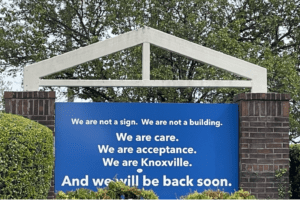A New Chapter
As we age, many of us find ourselves at a crossroads, contemplating the transition to a senior living community. This decision is significant, as it marks the beginning of a new chapter in life. But when is the right time to make this transition? In this article, we’ll explore key factors to consider when deciding on the move to a senior community.
1. Health and Wellness:
The state of your health is often a primary consideration. If you or your loved one is facing health challenges that are becoming increasingly difficult to manage at home, a senior community may offer a senior living plan that comprises of specialized care and support that can improve quality of life. Conditions such as mobility issues, chronic diseases, and cognitive decline can signal that it’s time to explore senior living options.
2. Safety Concerns:
Safety is paramount as we age. If living at home presents safety risks due to factors like falls, difficulty managing medications, or a lack of a reliable support system, transitioning to a senior community with round-the-clock care can provide peace of mind.
3. Loneliness and Social Isolation:
Social isolation can take a toll on emotional and mental well-being. If you or your loved one is feeling increasingly lonely, disconnected from friends or family, or missing social engagement, a senior community like The Chelsea at Fair Lawn independent living residences or Tiffany Court senior living community offers a vibrant social environment, fostering new friendships and a sense of belonging.
4. Maintenance Burden:
As homes age, maintenance and upkeep can become overwhelming. If you find yourself struggling to manage household chores, repairs, and yard work, a move to a community living for seniors relieves you of these responsibilities, allowing you to focus on more enjoyable pursuits.
5. Loss of a Spouse or Caregiver:
The loss of a spouse or primary caregiver can be a pivotal moment for considering senior living. Without the support of a partner or caregiver, transitioning to a community with trained staff can ensure you receive the assistance and companionship needed.
6. Financial Considerations:
Assess your financial situation to determine if moving to a senior community is financially feasible. Many communities offer various payment options, so it’s essential to research costs and determine a budget that works for you.
7. Lifestyle Preferences:
Consider the lifestyle you desire in your later years. Senior communities come in various forms, from independent living residences to assisted living and memory care like Western Slope Memory Care for seniors. Choose the one that aligns with your values, interests, and goals. Find out more about senior independent living plans and independent living options for seniors here.
8. Family Input:
Discuss your plans with family members and loved ones. Their input and support can be invaluable in making this transition. Addressing their concerns and keeping the lines of communication open can help ease the process.
9. Personal Readiness:
Finally, the decision to transition into community living for seniors should align with your personal readiness. This is a significant life change, and you should feel comfortable and confident in your choice.
There’s no one-size-fits-all answer to the question of when to transition into senior communities. It’s a decision that should be made with careful consideration of individual circumstances and preferences. The most important thing is to prioritize well-being and happiness in your later years and find the benefits of senior community living. When the time feels right, a senior community can offer not only care and support but also a fulfilling and vibrant lifestyle.


